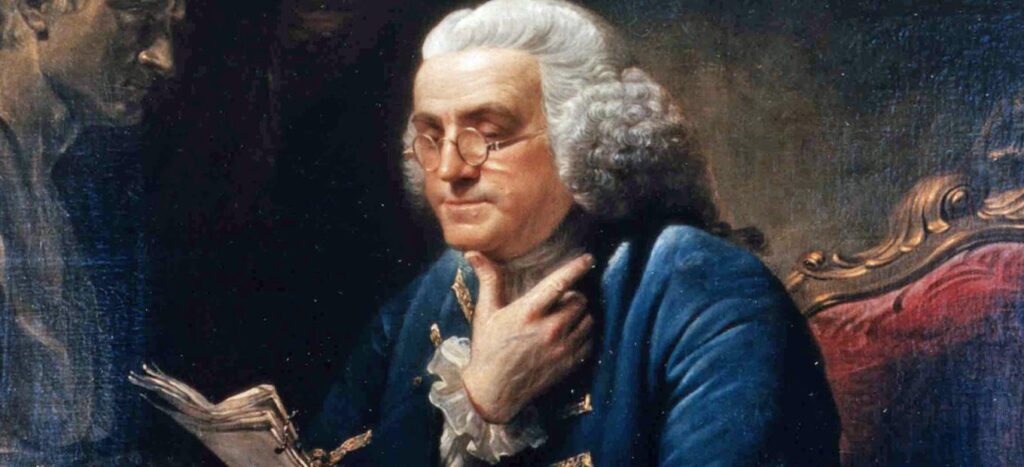
Benjamin Franklin is famous for his list of 13 virtues, which he used as a personal code of conduct to help him live a moral and productive life. The virtues, as listed by Franklin in his autobiography, are:
- Temperance: Eat not to excess; drink not to excess; sleep not too little; neither too much. Avoid all kinds of excess.
- Silence: Speak not but what may benefit others or yourself; avoid trifling conversation.
- Order: Let all your things have their places; let each part of your business have its time.
- Resolution: Resolve to perform what you ought; perform without fail what you resolve.
- Frugality: Make no expense but to do good to others or yourself; i.e., waste nothing.
- Industry: Lose no time; be always employed in something useful; cut off all unnecessary actions.
- Sincerity: Use no hidden or dishonest dealings, but be open, plain, and honest in all your transactions.
- Justice: Wrong none by doing injuries, or omitting the benefits that are your duty.
- Modesty: Avoid vanity; be humble; avoid arrogance.
- Cleanliness: Keep both body and soul clean.
- Transquility: Be calm, quiet, and peaceful; avoid anger, impatience, and passion.
- Affability: Be friendly and kind to all; engage in cheerful conversation with every one.
- Gratitude: Be thankful for all the favors you receive.
These virtues were a significant influence on Franklin’s personal development and helped shape his character, making him one of America’s most influential founding fathers.
SOURCE: Mistral OpenAI Model